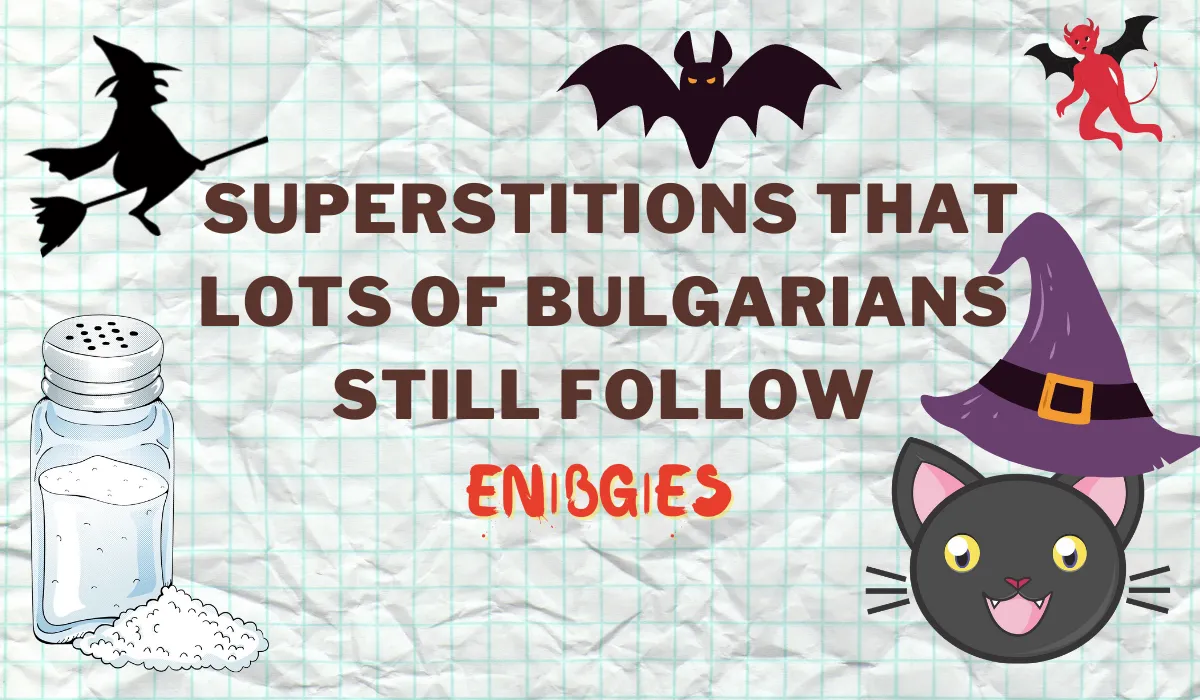
Thank you @starstrings01 for this contest!
There are many things we still believe in blindly. Even though we know they cannot change our destiny, we trust them to avoid bad omen.
Now I will share some of them with you.
A large part of the Bulgarian population is religious, not fanatically religious but believes in God and his influence over them. That is why many superstitions are tied to him.
One example is with bread.
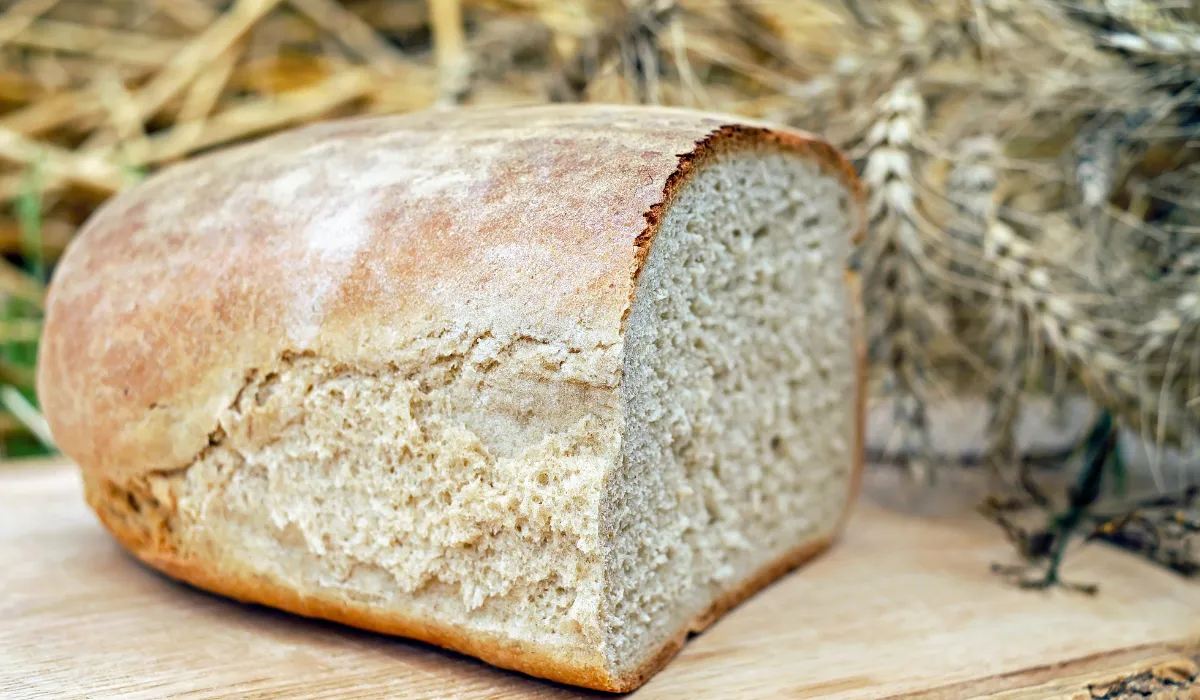
Bread should not be placed backwards, because it called death into the house
Interpretation - what is probably meant here is that for many centuries most Bulgarians were extremely poor and bread was one of the main things they cared to have on the table. Extreme care was taken with it.
When a black cat crosses your path, misfortune awaits you
Interpretation - Not only in our culture, but in others as well, the black cat is a symbol of magic. That is why the cat itself was believed to bring the bad of magic. To protect oneself one had to either make the cat go back the same way and cross the man's path twice or the man had to hurry and overtake the cat before it crossed his path.
Spitting in the bosom after a scare
Interpretation - as in all beliefs and religions, water has purifying power. And here it comes into play again. When we get scared outside we often don't have water with us so this superstition has stayed that way.
Salt spilled misfortune or quarrel
Interpretation - Now we all enjoy a good amount of salt in our houses but in the past salt was a valuable product that was difficult to obtain and very expensive. Probably there were quarrels over spilled salt so it has remained as a legend.
No throwing garbage in the evening
Interpretation - Probably this is also about occult powers and magic. It was believed that ghouls and devils lurked in the dark.
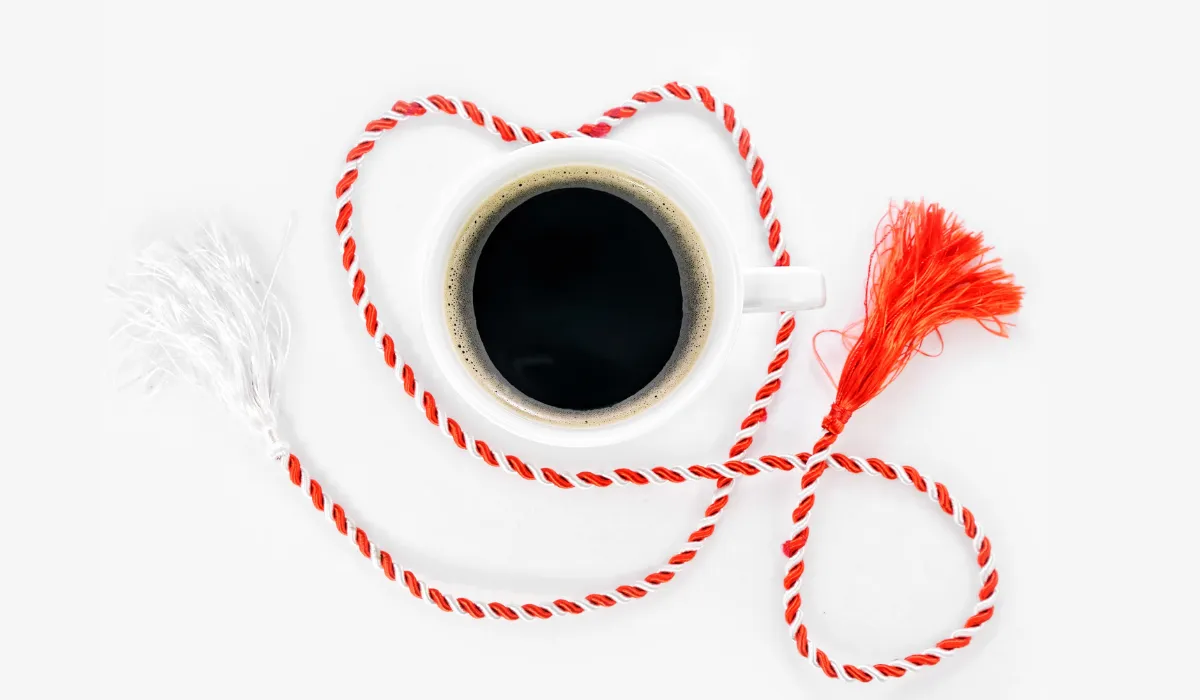
Martenitsi must be put under a stone or tied to a flowering tree
Interpretation - Martenitsa is a traditional Bulgarian custom. On the 1st of March, a braided white and red thread is placed in the form of a bracelet, necklace/collar, or brooch for health. It is taken off after seeing a stork or a flowering tree. Martenitsa rituals are done for health and prosperity.
A spider descending from its web
Interpretation - It was believed that once the spider "comes down" it meant that the home would be visited by guests.
Whatever holiday, birthday or name day was not to be celebrated before the date of the event because it brought bad luck
Interpretation - Events were not celebrated before their date because the person for whom they were celebrated might not live to see the actual date of their celebration.
A cuckoo around the house portends death
Interpretation - A cuckoo was thought to be a harbinger of death. It was often heard "singing" its song when one passes from this world.
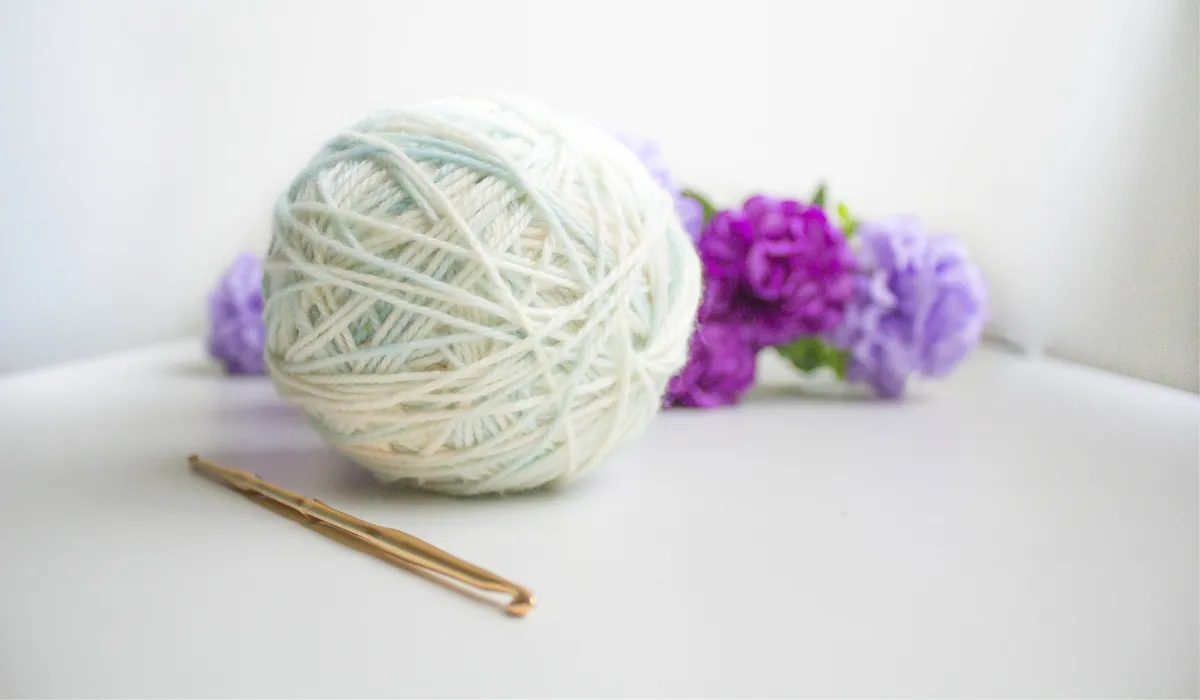
No sewing or knitting in the evening - the man would sew up his brain
Interpretation - Probably this superstition comes from the fact that before electricity people used to illuminate standing dwellings with candles or gas lamps and the light was scarce from them. This was probably uttered to avoid injury.
The Proshtapulnik
Interpretation - This is a custom in our lands, which is made at the moment the baby passes. A special sweet cake/pie/bread is prepared and rolled down a white path. At the end of the trail, there are objects that the child does not recognize. These are named to identify the child's future interests or profession (ladle - cook, paintbrush - artist, hammer - builder). The objects can be anything.
If you are a ladybug it is money and luck
Interpretation - Ladybug is a unique insect because of its appearance. Maybe that's also why they've named it lucky - because of its points.
Money is not given on Monday or Sunday
Translation - It is believed that if done throughout the week you would have to incur large expenses.
Care must be taken that unmarried girls are not swept away with a broom, for they will not marry
Interpretation - I don't know where this superstition came from. But when I was a little girl I was very careful not to let it happen. Well, I'm 33 now, still single, and someone might have swept me away and I didn't realize...
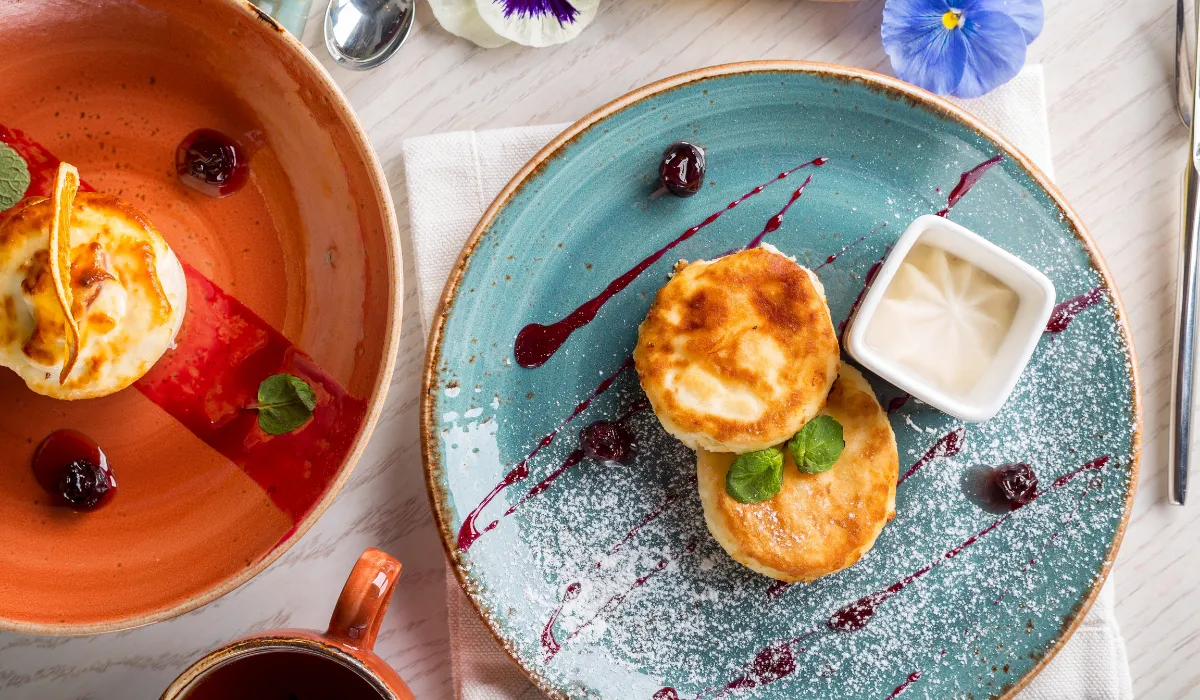
Here are a few more that don't need nagging..

Don't scrounge up the last dregs of the food portion - it's either a sign of poverty or the family will have financial problems
If you break a glass full of wine, it means you will meet your great love.
Money is given with the right hand and taken with the left

Български
Има много неща в които все още вярваме сляпо. Макар и да знаем, че те няма как да променят съдбата ни, ние им се доверяваме за да избегнем лошата поличба.
Сега ще ви споделя някои от тях.
Голяма част от българското население е религиозно, не фанатично религиозно но вярва в Господ и неговото въздействие над тях. Затова и много суеверия са обвързани с него.
Един пример е с хляба.
Español
Hay muchas cosas en las que seguimos creyendo ciegamente. Aunque sabemos que no pueden cambiar nuestro destino, confiamos en ellos para evitar los malos augurios.
Ahora compartiré algunos de ellos con ustedes.
Una gran parte de la población búlgara es religiosa, no fanáticamente, pero cree en Dios y en su influencia. Por eso, muchas supersticiones están ligadas a él.
Un ejemplo es el pan.

Хляба не трябва да се поставя наобратно, защото това извиквало смъртта в къщата
Тълкование - вероятно тук се има на предвид, че много векове повечето българи са били крайно бедни и хляба е бил едно от основните неща за които са се грижили да присъства на трапезата. Изключително много се внимава с него.
El pan no debe colocarse al revés, porque llama a la muerte en la casa
Interpretación - lo que probablemente se quiere decir aquí es que durante muchos siglos la mayoría de los búlgaros eran extremadamente pobres y el pan era una de las principales cosas que les importaba tener en la mesa. Se tuvo un cuidado extremo con él.
Когато черна котка ти премине път те очаква нещастие
Тълкование - Не само в нашата култура, но и в други черната котка е символ на магията. Затова и се смятало, че самата котка носи лошото от магията. За да се предпази човек трябвало или да накара котката да се върне по същия път и да прекрачи пътя на човека два пъти или човека да избърза и да изпревари котката преди да му е пресякла пътя.
Плюене в пазвата след уплаха
Тълкование - както във всички вярвания и религии водата има пречистваща сила. И тук тя отново се включва. Когато се уплашим навън често нямаме вода с нас затова и това суеверие е останало така.
Разсипана сол нещастие или кавга
Тълкование - Сега всички се радваме на добро количество сол в къщите си но в миналото солта е била ценен продукт, който трудно се е добивъл и е бил много скъп. Вероятно наистина са се случвали караници заради разсипаната сол затова е останало като поверие.
Вечерно време да не се изхвърля боклука
Тълкование - Вероятно и тук става дума за окултните сили и магиите. Вярвало се е че в тъмното се крият талъсъмите и дяволите.
Cuando un gato negro se cruza en tu camino, la desgracia te espera
Interpretación - No sólo en nuestra cultura, sino también en otras, el gato negro es un símbolo de magia. Por eso se creía que el propio gato traía el mal de la magia. Para protegerse había que hacer que el gato volviera por el mismo camino y se cruzara con el hombre dos veces, o bien el hombre tenía que darse prisa y alcanzar al gato antes de que se cruzara en su camino.
Escupir en el pecho después de un susto
Interpretación - como en todas las creencias y religiones, el agua tiene poder purificador. Y aquí entra en juego de nuevo. Cuando nos asustamos en el exterior, a menudo no tenemos agua con nosotros, por lo que esta superstición se ha mantenido así.
Sal derramada desgracia o riña
Interpretación - Ahora todos disfrutamos de una buena cantidad de sal en nuestras casas, pero en el pasado la sal era un producto valioso difícil de conseguir y muy caro. Probablemente hubo realmente peleas por la sal derramada, por lo que ha quedado como una leyenda.
No tirar la basura por la noche
Interpretación - Probablemente también se trate de poderes ocultos y magia. Se creía que los demonios y los diablos acechaban en la oscuridad.

Мартениците да се сложат под камък или да се вържат на цъфнало дръвче
Тълкование - Мартеницата е традиционнен български обичай. На 1-ви март се поставя сплетен бял и червен конец под формата на гривна, гердан/колие или брошка за здраве. Сваля се след като се види щъркел или цъфлано дърво. Ритуалите с мартеницата се правят за здраве и берекет.
Паяк, който се спуска от паяжина си
Тълкование - Смятало се е, че щом паяка "слиза" това значи че домът ще се навести от гости.
Какъвто и да е празник, рожден ден или имен ден да не се празнува преди датата на събитието защото носело нещастие
Тълкование - Не се празнували събитията преди датата им защото можело човека, заради който се празнува да не доживее реалната дата на празника си.
Кукувица около дома предвещава смърт
Тълкование - Кукувицата се смятала за предвестник на смъртта. Често се чувала да "пее" своята песен когато човек си отива от този свят.
Martenitsi para ponerlo debajo de una piedra o atarlo a un árbol en flor
Interpretación - La martenitsa es una costumbre tradicional búlgara. El 1 de marzo se coloca un hilo blanco y rojo trenzado en forma de pulsera, collar o broche para la salud. Se quita después de ver una cigüeña o un árbol en flor. Los rituales de Martenitsa se hacen por la salud y la prosperidad.
Una araña descendiendo de su tela
Interpretación - Se creía que una vez que la araña "baja" significaba que el hogar sería visitado por invitados.
Cualquier fiesta, cumpleaños o onomástica no debía celebrarse antes de la fecha del evento porque traía mala suerte
Interpretación - Los eventos no se celebraban antes de su fecha porque la persona por la que se celebraba podía no vivir para ver la fecha real de su celebración.
Un cuco alrededor de la casa presagia la muerte
Interpretación - Se pensaba que un cuco era un presagio de muerte. A menudo se le oía "cantar" su canción cuando uno pasa de este mundo.

Вечер да не се шие или плете - човекът щял да си зашие мозъка
Тълкование - Вероятно това суеверие идва от това, че преди електричеството хората са осветявали стоите жилища със свещи или газени лампи и светлината е била оскъдна от тях. Вероятно се е изричало това за да се избегнат наранявания.
Прощъпулник
Тълкование - Това е обичаи по нашите земи, който се прави в момента в който бебето проходи. Подготвя се специална сладка погача/питка/хляб, който се търкулва по бяла пътека. В края на пътеката има предмети, които детето не познава. Те се наричат за да определят бъдещите интереси или професия на детето (черпак - готвач, четка за рисуване - художник, чук - строител). Предметите могат да бъдат всякакви.
Ако те полази Калинка е на пари и късмет
Тълкование - Калинката е уникално насекомо заради своята визия. Може би и заради това са я определили за късметлийска - заради нейните точки.
Пари не се дават в понеделник или неделя
Тълкование - Смята се, че ако се направи през цялата седмица ще се наложи да се правят големи разходи.
Трябва да се внимава неомъжените момичета да не бъдат замитани с метла, защото няма да се омъжат
Тълкование - Не знам от къде е тръгнало това суеверие. Но като малка много внимавах да не се случи. Е, вече съм на 33 неомъжена все още, може и някой да ме е замел и да не съм разбрала...
Nada de coser o tejer por la noche - el hombre se cosería el cerebro
Interpretación - Probablemente esta superstición proviene del hecho de que antes de la electricidad la gente solía iluminar las viviendas de pie con velas o lámparas de gas y la luz era escasa en ellas. Esto fue probablemente pronunciado para evitar una lesión.
El proverbio
Interpretación - Esta es una costumbre en nuestras tierras, que se realiza en el momento en que el bebé pasa. Se prepara un pastel/pastel/pan especial y se hace rodar por un camino blanco. Al final del recorrido hay objetos que el niño no reconoce. Se nombran para identificar los futuros intereses o la profesión del niño (cazo - cocinero, pincel - artista, martillo - constructor). Los objetos pueden ser cualquier cosa.
Si eres una mariquita es dinero y suerte
Interpretación - La mariquita es un insecto único por su aspecto. Tal vez también por eso lo han llamado suerte: por sus puntos.
El dinero no se da el lunes ni el domingo
Traducción - Se cree que si se hace a lo largo de la semana habría que incurrir en grandes gastos.
Se debe tener cuidado de que las chicas solteras no sean barridas con una escoba, porque no se casarán
Interpretación - No sé de dónde viene esta superstición. Pero cuando era niña me cuidaba mucho de que no pasara. Bueno, ahora tengo 33 años, sigo soltero, y puede que alguien me haya arrastrado y no me haya dado cuenta...

Ето и още няколко, които нямат нужда от тълкование ..
Не се обират последните остатъци от порцията храна - това било признак на бедност или ще има финансови проблеми семейството
Ако счупите чаша пълна с вино, това означава, че ще срещнете голямата си любов.
Пари се подават с дясната ръка, а се взимат с лявата
Aquí hay algunos más que no necesitan ser regañados..
No gorronees los últimos restos de la ración de comida: es un signo de pobreza o la familia tendrá problemas económicos
Si rompes un vaso lleno de vino, significa que te encontrarás con tu gran amor.
El dinero se da con la mano derecha y se toma con la izquierda

Имате ли подобни във вашата култура?
¿Tienen algo similar en su cultura?
Do you have any similarities in your culture?
All the images or some of them in this article are from this website. All Content on Pixabay is free to use for commercial and non-commercial purposes - Check the license]

